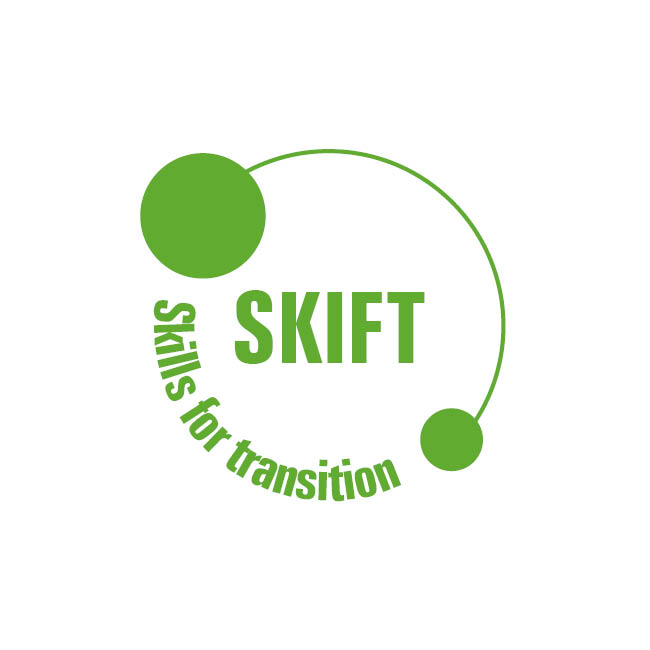
New perspectives for small and micro social economy enterprises in the context of green transition stood at the centre of a webinar organised by the partners of the EU-funded SKI.F.T. project on 29 October 2024.
The event brought together social economy enterprises of different size, social economy support organisations, other economic actors, civil society organisations and academics from 9 EU Member States, Switzerland, the UK and Turkey, as well as representatives of European organisations and the European Commission.
During the webinar, testimonies of several micro and small social economy actors from different fields of activity (recycling&upcycling, construction, IT, waste management, …) were a proof of the huge (innovation) potential and added value of these enterprises when it comes to social green transition. A potential which too often cannot be fully exploited due to a number of challenges, including frequently limited access to funding opportunities which are still very much targeted at medium and large enterprises, a lack of capacity in terms of human resources, insufficient knowledge regarding potential partners (including suppliers or experts), legislative hurdles, or simply a lack of visibility and recognition of their added value…
These challenges must be taken into account also by (social economy) support organisations and other actors having developed and/or developing tools and programmes to respond to the specific needs of small and micro (social economy) enterprises wishing to engage (more) in green transition processes. Some participants pointed out that, in a social economy perspective, the task of these organisations goes (or should go) beyond being simple training/service providers towards animating networks at local, regional and national level. Such networks should enable cooperation, mutualisation and the creation of local ‘social green’ value chains in which small and micro social economy enterprises are fully integrated.
Among the possible pathways and actions to be incorporated in the future by the social economy and policy-makers at regional, national and/or EU level there are, according to speakers and participants, the following ones :
- The need for Europe to build on its rich SME landscape and its diversity in general instead of focusing investment and attention mainly on « European champions ».
- Development of innovation: Enhanced cooperation between social economy enterprises, as well as between social economy enterprises and other type of companies.
- Further investment in skills development.
- Ensuring financial support (also by maintaining and fine-tuning Invest EU and its social window to mobilise private financing by ethical and alternative banks as well as other type of finance actors);
- Creation of more fiscal incentives.
In his conclusions, Giuseppe Guerini, President of CECOP and Member of the European Economic and Social Committee, reminded participants of the importance of combining principles around sustainable development and entrepreneurship also with values such as democracy and inclusion. He suggested complementing the triple bottom line “People, Planet, Profit” which is supposed to measure the success of entrepreneurship also in terms of sustainability by “Productivity, Participation and Progress for all”.
The organisers would like to thank in particular Joanna Wierzba (Social Cooperative Zero Ban - PL), Laura Klakk (Log Ladies - DK), Maria Rosa Manca (Social Cooperative Padre Daniele Badiali - IT), Davide Specchio (Association Virtual Life - IT), Anna Skocz (sTOP - PL), Manon Tondeur and Laurence Vandenhoeke (Groupe One - BE), Henrik Nørgaard (Clean Cluster - DK), Lois Pimentel Iglesias (European Commission, DG Grow), Daniel Sorrosal (FEBEA) and not at least Giuseppe Guerini, President of CECOP and Member of the European Economic and Social Committee.
You can find further information on SKI.F.T. and, in some weeks ahead, the short report of the webinar here: https://skift.kooperationen.dk/forside/
![]()
Co-funded by the European Union. Views and opinions expressed are however those of the author(s) only and do not necessarily reflect those of the European Union or EISMEA. Neither the European Union nor the granting authority can be held responsible for them.







 Employment & Social Inclusion
Employment & Social Inclusion  Entrepreneurship
Entrepreneurship Sustainable Growth
Sustainable Growth 

